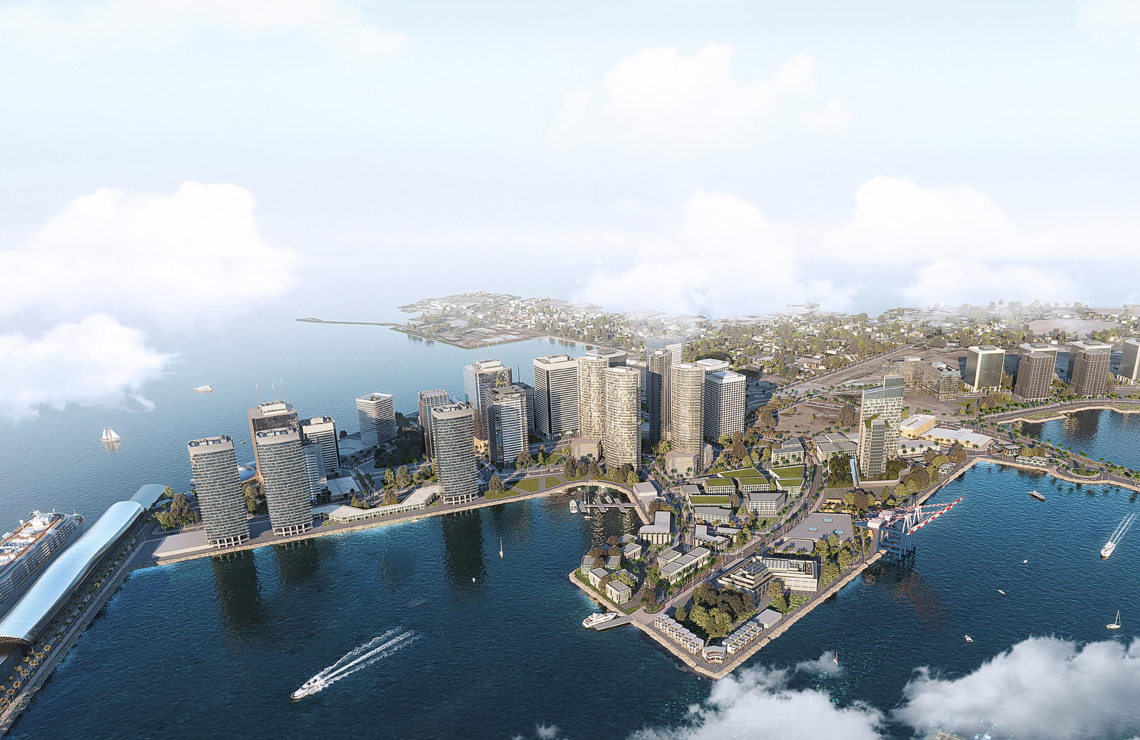
Future in focus
The method is this: think big and constantly look to the future in terms of infrastructure, sustainable development and technology. Some projects will take time to roll out, but the aim is to harness energy and resources.
Aware of its lack of natural resources and means, Djibouti is striving to make the most of its precious assets, which include its strategic location, sunshine and monetary stability. The aim is to always be one step ahead - even if, at times, achievements and results may take a little longer to materialise. In the design offices of a capital undergoing rapid change, the future is constantly being imagined. The aim is to attract a million tourists by 2035. Or to become a space hub, while simultaneously enhancing the telecoms hub. Beyond the hype, there are projects underway. And, as demonstrated by the development of the Damerjog petrochemical complex, in the end it's all a question of time.
A new business city
Standing at an impressive 243 metres tall, the 43-storey Djibouti Towers, designed by a Russian architect and featuring the various symbols of the national flag, were set to soar into the Djibouti sky from the historic port built by colonial France in 1888. The image was widely circulated in 2021. However, the East Africa International Special Business project, which is both global and enormous, is scheduled to take place in six phases. Led by the China Merchants group, the venture embodies the ‘king size’ ambitions of the small republic in the Horn of Africa. Officially launched in October 2020, the design of the complex is based on the Port-Park-City model. Its purpose is to optimise the logistics hub by creating a backbone of services, while at the same time promoting hospitality and tourism. Despite the delays caused by Covid, the first phase is underway, with the opening of the exhibition centre and the Résidence l'Escale hotel complex.
Climate emergency
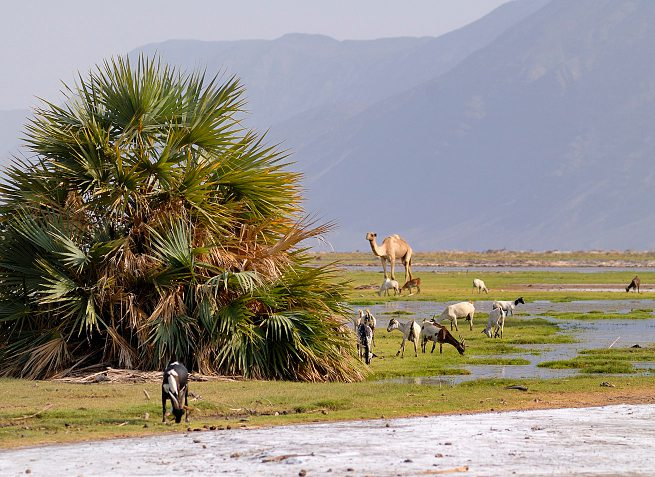
Here, the consequences of global warming can not only be seen in the natural world, but are also a threat to human beings.
The Horn of Africa is expected to pay the heaviest price, with an increase of 2.7 to 3.6°C in the coming years. So much so that ‘the region runs the risk of becoming uninhabitable due to heat waves that are likely to exceed human physiological and social limits’, pointed out President Ismaïl Omar Guelleh last March, at the close of the first Global Summit on Extreme Heat. Apart from that, as noted in a World Bank report published in January, Djibouti remains highly vulnerable to the risk of rising sea levels and flooding, due to unpredictable rainfall, as well as the risk of earthquakes. A 2°C rise in temperature will seriously threaten 90% of coral reefs. The country is also one of the most water-stressed in the world. ‘The spectre of thirst is tangible’, warned the Head of State who, in late 2022, set up a Regional Observatory for Research on the Environment and Climate (ORREC), with the support of the International Atomic Energy Agency (IAEA). Nomadic populations are now being encouraged to settle around water points by, among other things, mobilising groundwater and run-off from boreholes. The recent opening of the Ghoubet wind farm (60 MW) and hydroelectricity imported from Ethiopia are ways of diversifying energy sources to mitigate the consequences of global warming. Djibouti aims to reduce its CO2 emissions by 40% by 2030.
Geothermal energy
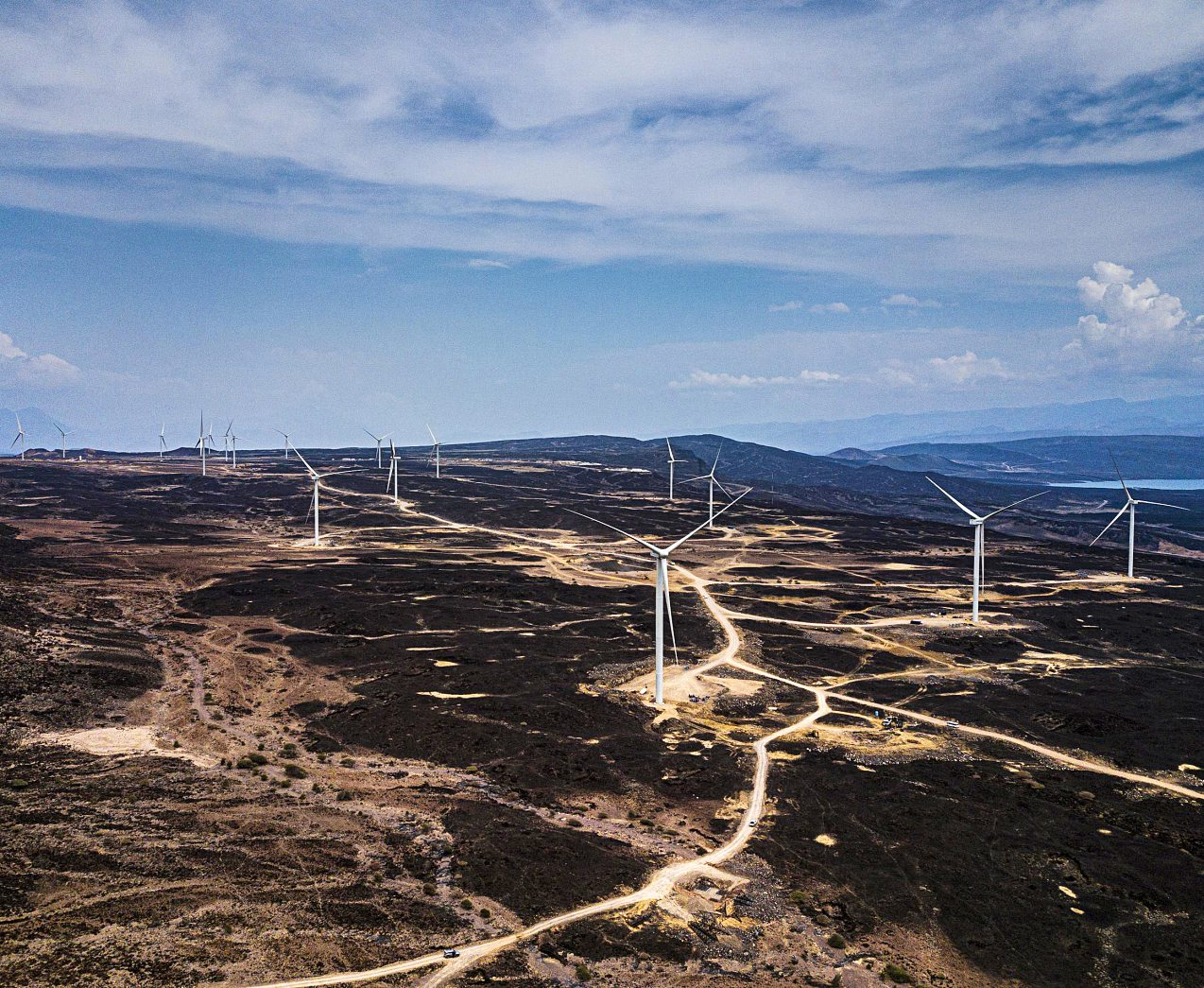
In this context, Djibouti has set itself the goal of becoming the first African country to supply its population with 100% renewable energy by 2035. In September 2023, the country inaugurated the Red Sea Power wind farm in Ghoubet, which comprises 17 wind turbines and has a total production capacity of 60 MW. It is due to be extended by a further 45 MW, to which will be added the 25 MW of the future Grand Bara photovoltaic solar power plant. In August last year, Dubai-based independent power producer AMEA Power took over the project from France's Engie as part of a public-private partnership with the Djibouti Sovereign Wealth Fund. The park is expected to save 252,000 tonnes of CO2 per year. Djibouti is also developing a green hydrogen project with Australian company CWP Global, which will have an electrolysis capacity of 10 GW. A portion of the electricity produced will be fed into the national grid. It also intends to capitalise on its strong geothermal potential, with 1,000 MW buried underground. Several projects have come on stream, at Galla Le Koma, Garabbayis, Fialé and Arta. Others, such as a biomass power plant (40 MW) and a tidal power plant (40 MW), should enable Djibouti to meet its targets and to lower electricity prices, which are currently very high, in order to continue to attract investors.
Telecoms
Djibouti reportedly saw four submarine cables linking Europe to Asia and passing through its waters damaged last February, most likely as a result of the anchor of a boat hit by Houthi gunfire in Yemen and causing major disruption to communications in India and the Gulf States. This once again underlines the strategic nature of the Republic's location on the Red Sea and the connectivity junction it represents for communication between continents. Since November 2023, the capital has been the landing point for a tenth submarine cable, India Europe Express (IEX), passing through Oman, Saudi Arabia, Egypt, Greece, Italy and France, under an agreement with Facebook parent company Meta. An eleventh cable, Blue Raman, launched by Google and linking Israel and Saudi Arabia, is due to come on stream shortly. While the country hosts data from the world's leading ICT companies, it needs to speed up network access for its own population. At the end of 2022, mobile Internet access in Djibouti stood at just 24.19%. It has only recently managed to reach 90% 4G coverage. And ‘the average price of fixed broadband services in Djibouti is twice as high as in Cape Verde and three times as high as in Ethiopia, while Internet speed was, until the summer of 2023, among the lowest 10% in the world’, notes the World Bank in its January 2024 report. Despite the awarding of licences to two Internet service providers, the opening up of the capital of Djibouti Télécom, one of the world's last public monopoles along with Eritrea, is still on the agenda.
Roads
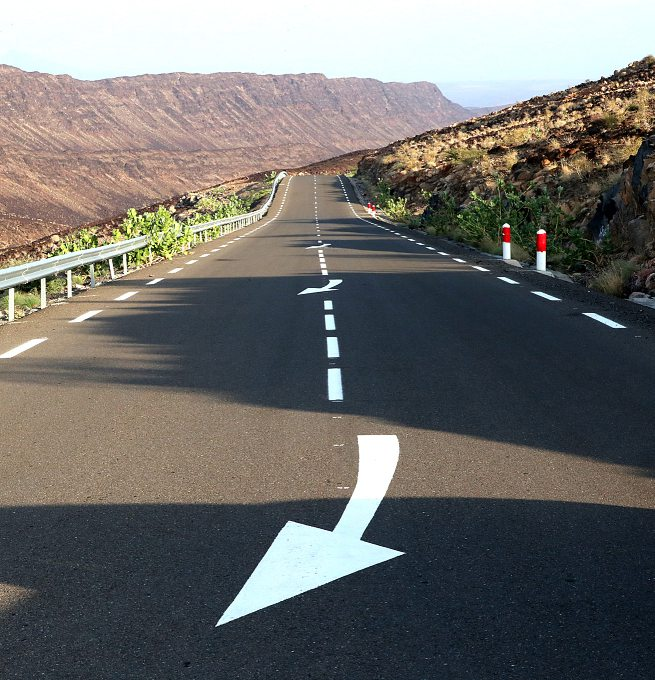
The Djibouti delegation led by Ilyas Moussa Dawaleh, Minister for the Economy, did not return empty-handed from Washington in April. It was able to mobilise $135 million from the World Bank and the African Development Bank at a round table attended by numerous donors, on the sidelines of the Bretton Woods institutions' spring general meetings. It focused in particular on the rehabilitation of roads which have been damaged by heavy traffic and bad weather and which are crucial given that 90% of Ethiopia's freight transits through Djibouti. To maintain the competitiveness of its seaports, the Republic has to ensure good quality road infrastructure leading to its neighbour that allows goods to transit safely and quickly. According to our figures, the Djibouti government is committed to a global programme worth $690 million. It is looking for $341.5 million for corridors of regional importance, and $285 million for roads in the capital and secondary towns, and those not yet asphalted.
Airports
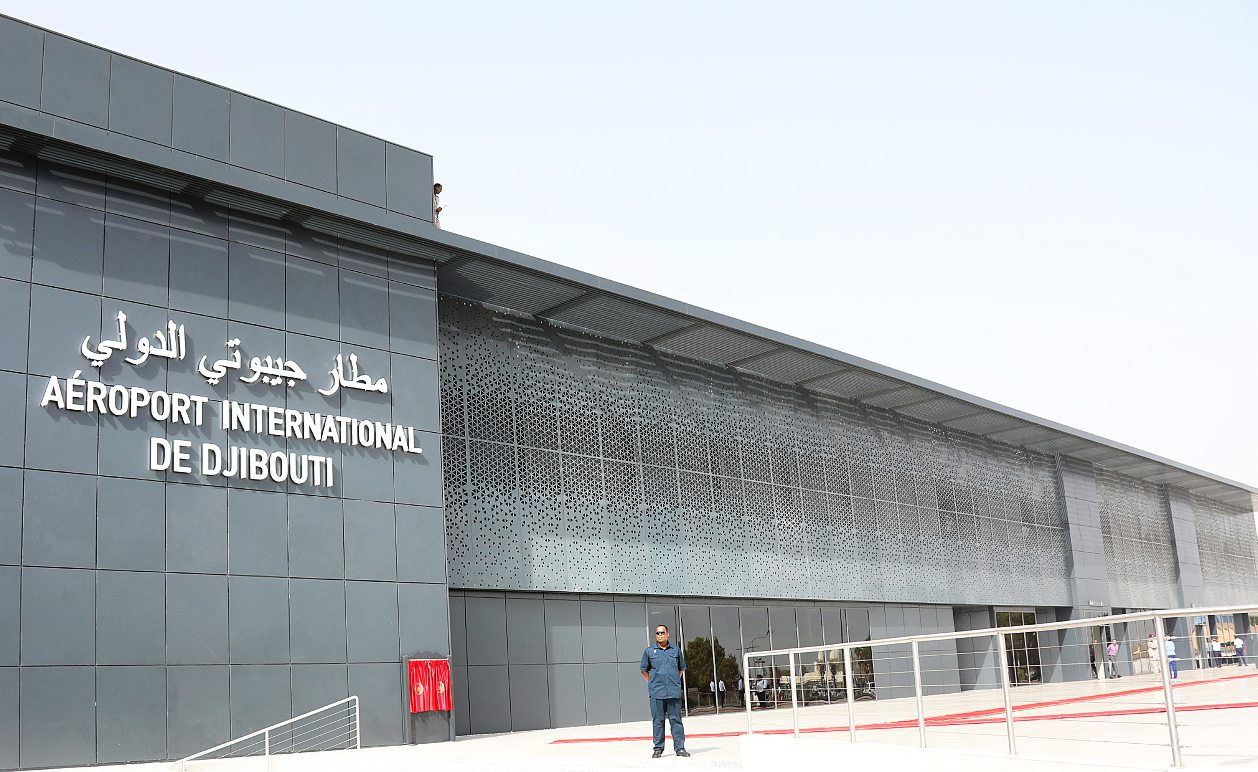
Djibouti has included not one, but two new airport projects in its Vision 2035 plan for a total cost of $600 million. The current Ambouli airport is squeezed into the city, and constraints due to military activities are not conducive to its expansion. Located 60 kilometres from the capital, in Ali Sabieh, the first of these airports (already named Al-Hadj Hassan Gouled Aptidon international airport) has a capacity of 1.5 million passengers a year and 100,000 tonnes of freight handled. The aim is to create synergy between the various modes of transport. An essential element in the logistics hub strategy. “It will have a cargo terminal that will serve as an air-sea logistics base, transforming Djibouti into a strategic hub for the region”, explains the Djibouti Ports and Free Zones Authority (DPFZA). The Authority already operates a multimodal sea-air chain serving 24 cities in 21 countries, including Johannesburg, Kigali, Bujumbura and Abidjan. "The airport offers customers the opportunity to make significant economic savings and to open up the countries of the Great Lakes region and beyond. Goods in the free zone can be repackaged and reshipped by air", Aboubaker Omar Hadi, Chairman of the DPFZA, told Afrique Magazine in January [see website]. The operation required a particularly complex technical and financial package. The design contract has been awarded to French companies Egis and ADP Ingénierie. The second hub will be located in Obock, with a targeted 350,000 passenger capacity.
Reaching for the stars
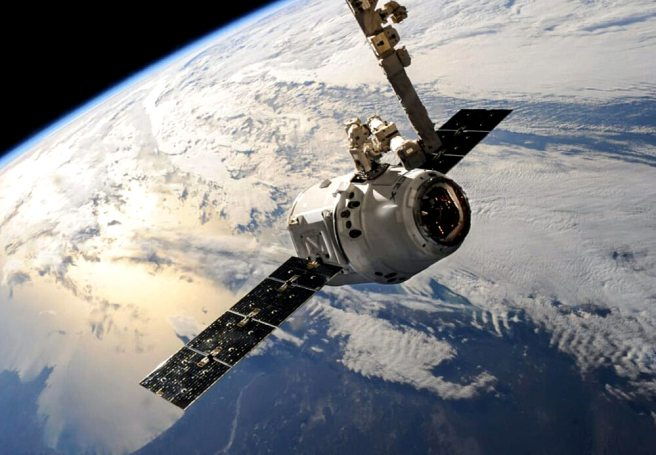
The Djibouti-1A satellite is now 520 kilometres above the Earth, having been launched into orbit on 11 November from the Californian Vandenberg space base aboard a Falcon 9 rocket belonging to Elon Musk's company, SpaceX. Designed by a team of around ten Djiboutian engineers and technicians trained at the Montpellier University Space Centre (CSUM), the nano-satellite collects meteorological and hydrometric data in real time, particularly in areas without internet coverage, in order to improve agriculture, monitor climate change phenomena such as drought, and combat food insecurity. While the launch of Djibouti-1B was announced for 2024, the country is still determined to build a space port in Obock, following a memorandum